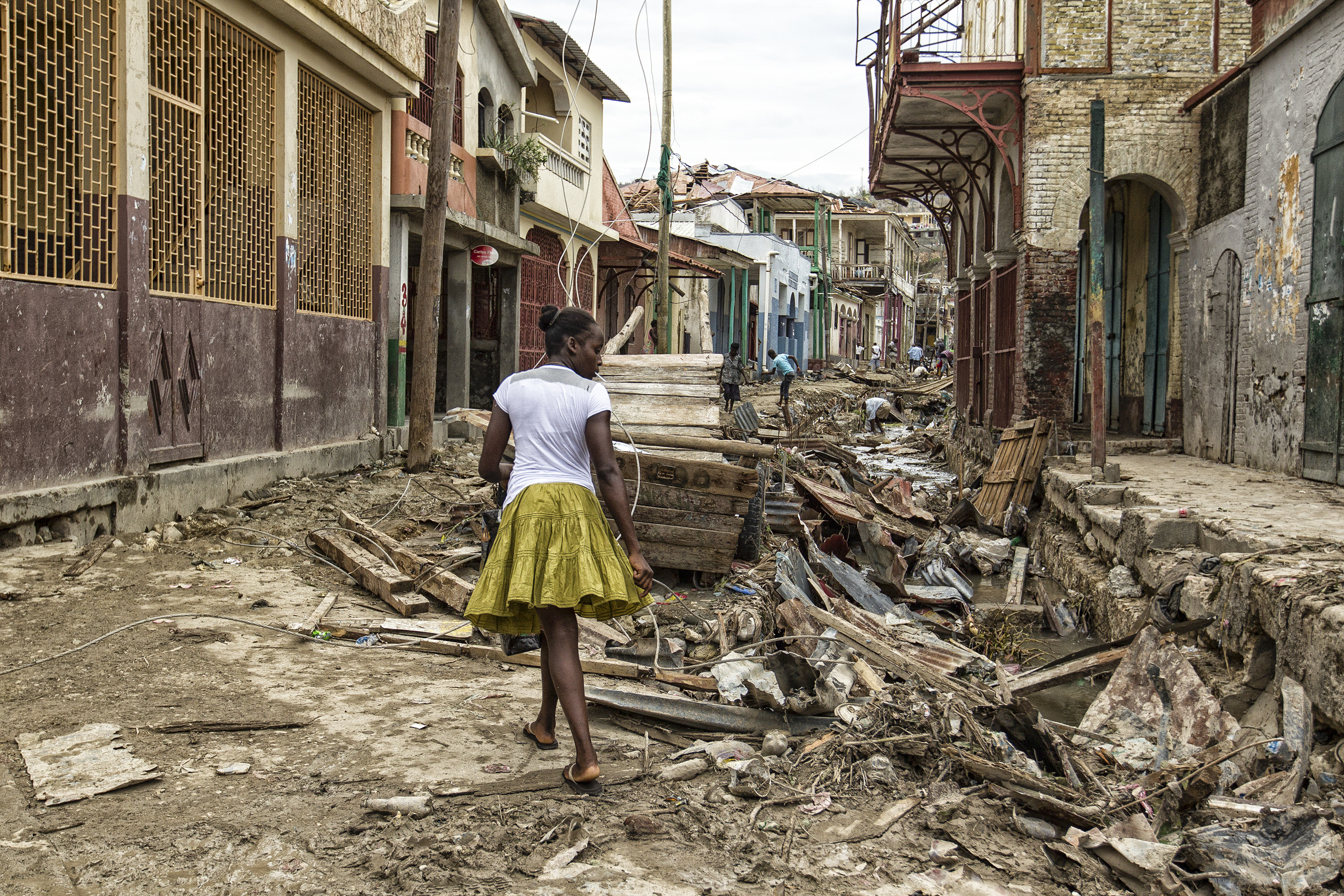The UN Development Programme (UNDP), the UN Office for Disaster Risk Reduction (UNDRR), the European Union (EU) and the Organisation of African, Caribbean and Pacific States (OACPS) have joined forces around a major initiative to support countries better manage their risks and build back better from disasters.
Amid rising climate change disaster risks, EU-UN initiative helps the African, the Caribbean and Pacific countries better prevent and recover from disasters
November 28, 2022

The number of recorded disasters has increased five-fold over the past 50 years.
The number of recorded disasters has increased five-fold over the past 50 years, driven in part by human-induced climate change and more extreme weather, according to the World Meteorological Organization.
The UN Development Programme (UNDP), the UN Office for Disaster Risk Reduction (UNDRR), the European Union (EU) and the Organisation of African, Caribbean and Pacific States (OACPS) have joined forces around a major initiative that aims to support African, the Caribbean and Pacific nations to better protect people and economies from growing climate risks.
The five-year initiative, funded by the European Union with USD 21.7 million (EUR 21.3 million), will support countries better understand and manage their risks, while also helping them to build back better from disasters.
Despite not being a major contributor to climate change, Africa faces disproportionate impacts from its effects, including increased floods and droughts. The same is true for the Small Island States of the Caribbean and Pacific, many of which face an existential threat from climate change.
A particular area of focus of the initiative will be to expand the early warning coverage, which is a proven climate adaptation and risk reduction measure that saves lives and reduces economic losses. Currently, forty percent of African countries and only one-third of Small Island Developing States have a multi-hazard early warning system in place.
“With more and more disasters occurring during this decade, the signal is clear. We need to redouble our efforts to co-create solutions for the world’s most vulnerable countries. We must enhance their risk governance arrangements so that they can better manage these systemic risks, drive down vulnerability and exposure. If we can build up capacities of states, local governments and communities to manage adverse situations, people’s suffering can be alleviated when the disasters do hit,” said Asako Okai, UN Assistant Secretary-General and Director of UNDP’s Crisis Bureau. “We must align our collective strengths in order to do this. Partnerships are key to achieving the Sendai Framework for Disaster Risk Reduction,” she underlined.
This initiative will contribute to the outcomes of COP 27 in Sharm el-Sheikh, Egypt, including the launch of the Action Plan to realize UN Secretary-General Antonio Guterres’ Early Warnings for All initiative, which aims to ensure every person on the planet is protected by early warning systems by 2027.
Mami Mizutori, UN Assistant Secretary-General, Special Representative of the Secretary-General for Disaster Risk Reduction and Head of UNDRR, said: “African, Caribbean and Pacific countries have contributed the least to creating the climate crisis but bear the heaviest costs in increased disasters. We thank the EU for funding this initiative to help countries build their resilience from current and future climate and disaster risks, thus protecting people, livelihoods and development.”
This EU-UN partnership demonstrates the joint commitment to scale up the implementation of the Sendai Framework for Disaster Risk Reduction, the global roadmap for reducing disaster risks and losses by 2030.
Media enquiries:
UNDP Brussels: Ludmila Tiganu, ludmila.tiganu@undp.org
UNDP New York: Aimee Brown, aimee.brown@undp.org
UNDRR Geneva: Omar Amach, omar.amach@un.org

 Locations
Locations